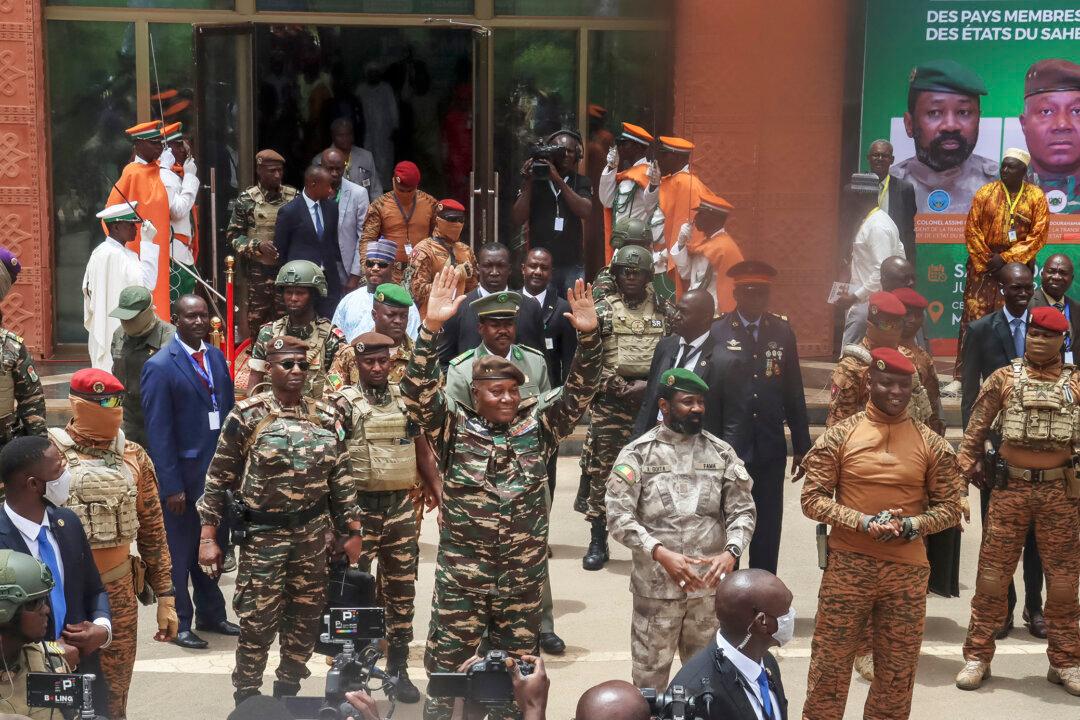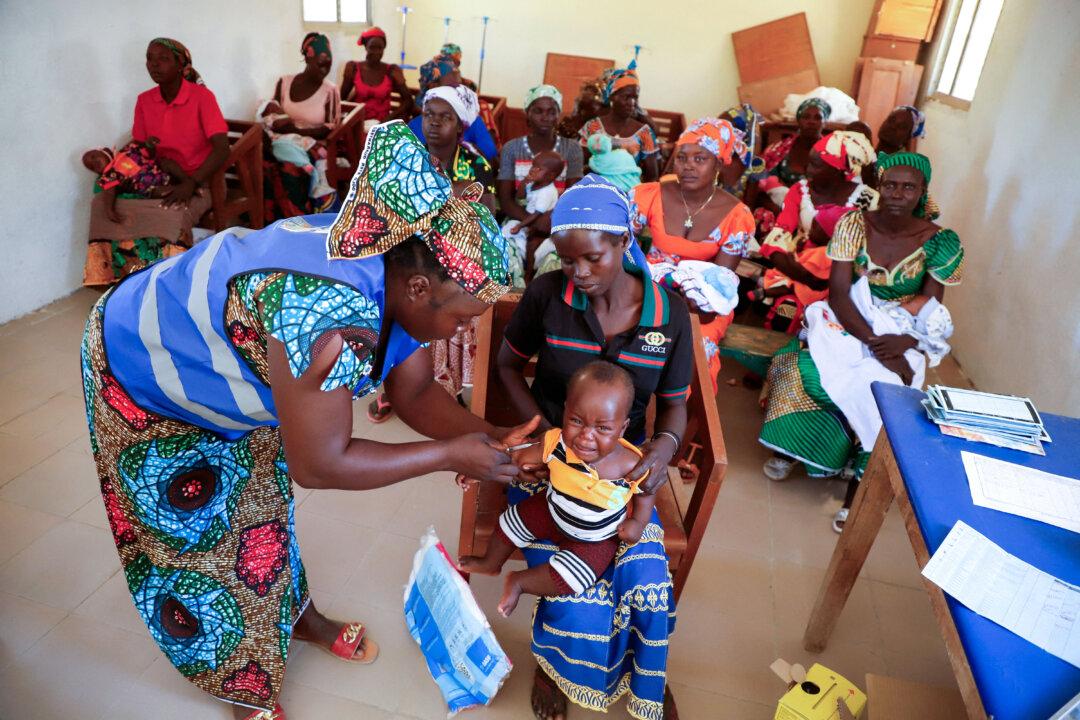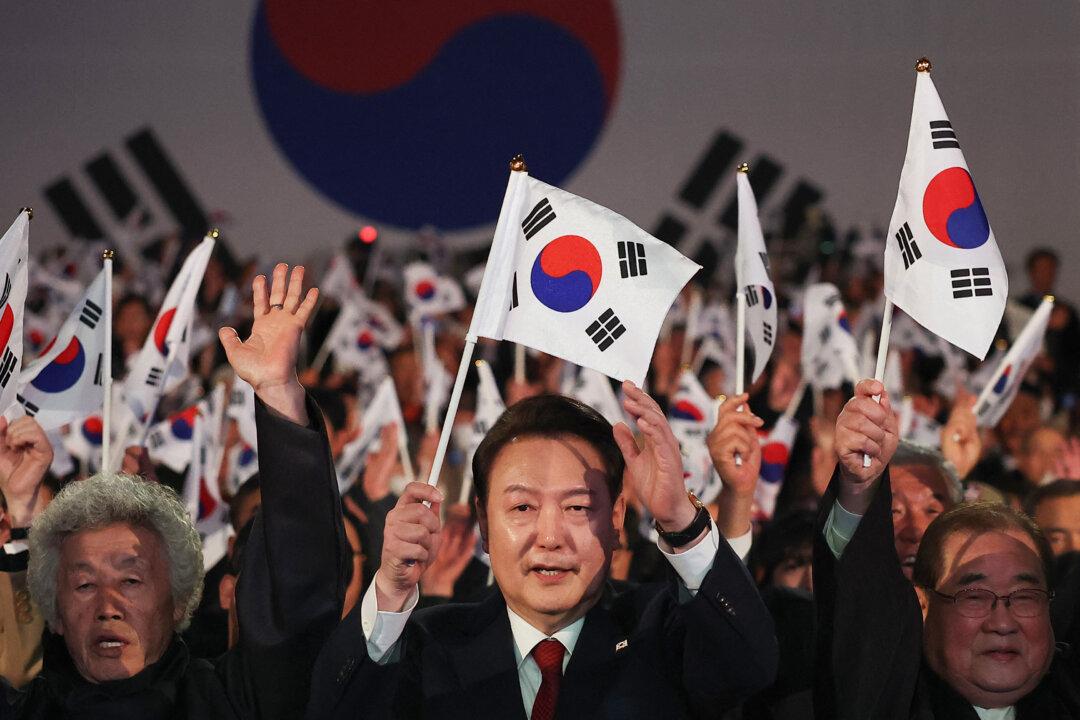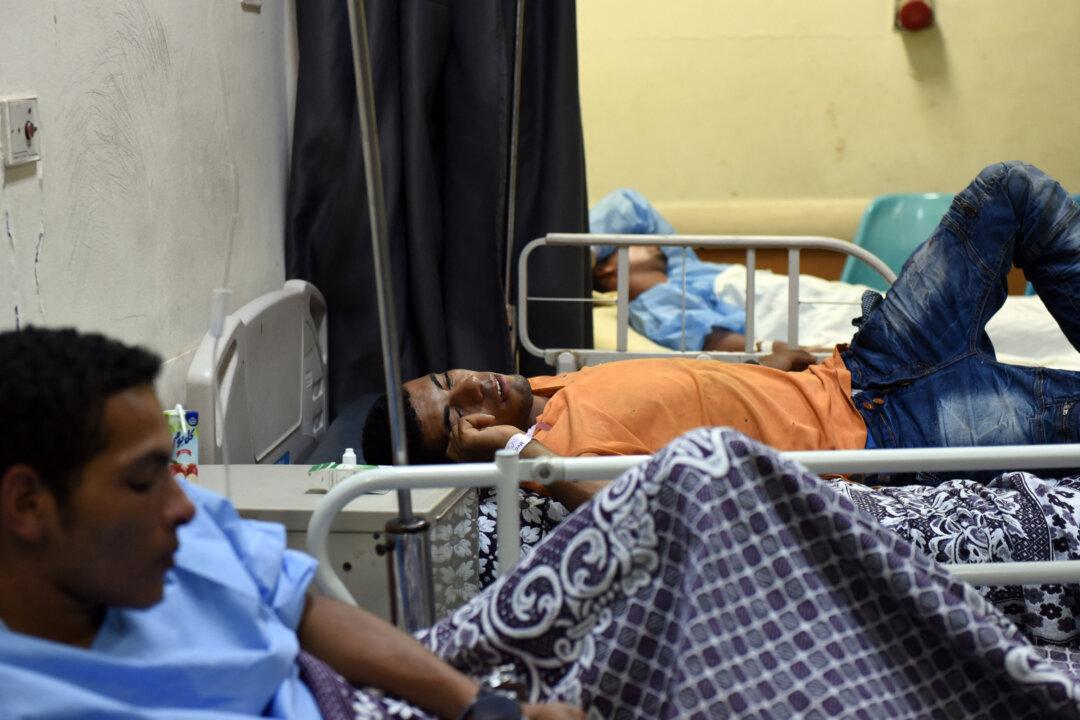YAOUNDE, Cameroon—Africa’s volatile Sahel region has been plunged into political uncertainty following a recent decision by the military rulers of Burkina Faso, Mali, and Niger to form a breakaway union from the Economic Community of West African States (ECOWAS).
The military leaders of the three countries said on July 6 that they were “irrevocably” turning their backs on the 15-member West African bloc to form the Confederation of Sahel States.





